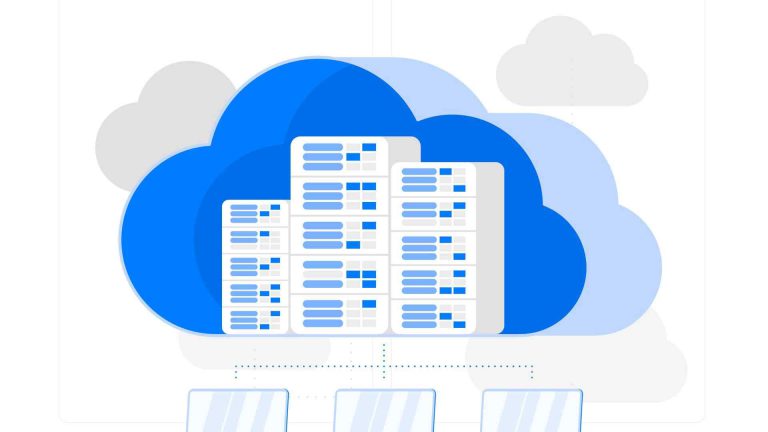Banking and Financial Services
Alibaba Cloud, also known as Aliyun, is a cloud computing platform and service provider owned by the Alibaba Group. The Alibaba Cloud course is designed to provide learners with the skills and knowledge necessary to work with this platform. The course covers a variety of topics related to Alibaba Cloud, including cloud computing concepts, cloud storage, and database services. Students will also learn about network security, content delivery networks, and other key components of the Alibaba Cloud platform. By the end of the course, learners will have a comprehensive understanding of the Alibaba Cloud platform and will be able to confidently deploy, manage, and troubleshoot applications on this platform. This can be a valuable skillset for individuals and businesses looking to leverage the benefits of cloud computing, including cost savings, scalability, and reliability.
The AWS Certified Cloud Practitioner course is an entry-level certification course designed for individuals with little or no experience in cloud computing. Upon completing the course, participants will have the skills and knowledge required to understand the basic concepts of AWS cloud computing, including AWS services, pricing models, and security. They will also be able to estimate AWS costs and use the key AWS services such as EC2, S3, RDS, and Lambda. This course is a great foundation for individuals who want to build a career in cloud computing and prepare for other AWS certification exams. Overall, the AWS Certified Cloud Practitioner course is an excellent choice for individuals who are new to cloud computing and want to gain a foundational understanding of AWS services and features.
The AWS Cloud Architect course is designed for professionals who want to learn how to design and implement cloud-based solutions on the Amazon Web Services (AWS) platform. AWS is a leading cloud computing platform that provides a wide range of services, including computing, storage, and database services, as well as tools for developing, deploying, and managing applications. An AWS Cloud Architect is responsible for designing and deploying AWS-based cloud solutions that meet customer requirements for scalability, reliability, security, and performance. The AWS Cloud Architect course typically covers a wide range of topics related to cloud architecture and infrastructure, including cloud computing concepts, AWS services, security, migration, and cost optimization.
The AWS Cloud Associate course is an entry-level certification program that is designed to teach individuals the fundamentals of Amazon Web Services (AWS) and cloud computing. It is designed for individuals with little or no experience in cloud computing and provides a foundational understanding of AWS services, cloud computing concepts, and basic cloud security principles. AWS is one of the leading cloud computing platforms, offering a wide range of services and features that enable organizations to build and scale their applications in the cloud. The AWS Cloud Associate course typically covers a wide range of topics related to cloud computing and AWS, including AWS services, security, storage, compute, and networking.
The AWS Docker Kubernetes course is a comprehensive training program that is designed to help IT professionals learn how to manage containers and container orchestration in the AWS environment. This course is ideal for those who are interested in learning how to build, deploy, and manage scalable containerized applications using Docker and Kubernetes. This course is ideal for IT professionals who want to learn how to use containers and container orchestration tools to build and manage scalable, cloud-native applications in the AWS environment. It is also a great choice for anyone who wants to prepare for the AWS Certified DevOps Engineer – Professional exam.
The AWS S3, Lambda, Glue, and Athena course is designed to teach individuals how to use these services in combination to build and manage data pipelines and analytics workflows on AWS. These services are part of the AWS ecosystem and are commonly used in cloud computing and data analysis. Amazon S3 is a simple storage service that provides object storage through a web interface. AWS Lambda is a serverless computing service that allows users to run code without provisioning or managing servers. AWS Glue is a fully managed extract, transform, and load (ETL) service that makes it easy to move data between data stores. Amazon Athena is an interactive query service that makes it easy to analyze data in Amazon S3 using standard SQL. Students will typically learn how to use AWS services to build data processing and analytics pipelines that can be used to process large volumes of data quickly and efficiently. The course will also cover best practices for security and performance optimization, as well as how to troubleshoot common issues that may arise during development and deployment.
Azure ADF/PLSQL course is designed to provide a comprehensive understanding of how to integrate and manage data workflows using Azure Data Factory and PL/SQL. Azure Data Factory (ADF) is a cloud-based data integration service that enables users to create, schedule, and manage data pipelines, while PL/SQL is a procedural language used for managing data in Oracle databases. Upon completing the course, participants will have a good understanding of how to integrate and manage data workflows using Azure Data Factory and PL/SQL. They will also be able to design and implement data integration solutions, optimize and troubleshoot data pipelines, and implement cost optimization strategies. The Azure ADF/PLSQL course is an excellent choice for data engineers, database developers, and anyone who wants to learn about integrating and managing data workflows using Azure Data Factory and PL/SQL. The course provides valuable skills and knowledge that can be applied to a range of industries and business sizes.
The Azure AZ900 course is designed to provide students with a foundational understanding of Microsoft Azure, including its features, capabilities, and benefits. The Azure AZ900 course online provides students with a flexible, accessible, and industry-relevant way to gain the knowledge and skills they need to succeed in the field of Azure. Azure is a rapidly growing platform, and there is a high demand for professionals with expertise in Azure. By completing the course, students can differentiate themselves in the job market, expand their skill set, and prepare themselves for a career in Azure.
The BigQuery course is designed to provide participants with an in-depth understanding of Google Cloud's fully-managed, serverless data warehouse solution. The course covers all the key features of BigQuery and teaches participants how to use it to efficiently store, manage, and analyze large amounts of data in real-time. The course covers best practices for managing and monitoring BigQuery, including tips for optimizing cost, managing resource utilization, and monitoring performance. Upon completion of the BigQuery course, participants will have a solid understanding of the key features and capabilities of BigQuery and will be equipped with the knowledge and skills needed to use it effectively to store, manage, and analyze large amounts of data in real-time. The course also provides participants with the foundation they need to pursue further Google Cloud certifications in data engineering or data analytics.
The Cloud Site Reliability Engineering (SRE) course is designed for professionals who want to learn how to maintain and manage cloud infrastructure with reliability and efficiency. SRE is a methodology that combines software engineering and operations to build and operate large-scale, distributed, and complex systems. Cloud SRE is a specialization of SRE that is focused on managing and maintaining cloud-based infrastructure. Cloud SREs are responsible for designing, deploying, and managing highly available and scalable cloud-based systems. They work closely with software engineers and other stakeholders to identify potential issues and implement solutions to prevent outages and service disruptions. The Cloud SRE course covers a wide range of topics related to cloud infrastructure management, including cloud architecture, reliability engineering, monitoring, automation, incident management, and performance optimization.
No posts found
























